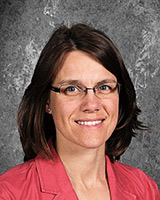Team:Jefferson VA SciCOS
From 2014hs.igem.org
| (9 intermediate revisions not shown) | |||
| Line 1: | Line 1: | ||
<div id="header">{{Team:Jefferson_VA_SciCOS/Header}}</div> | <div id="header">{{Team:Jefferson_VA_SciCOS/Header}}</div> | ||
| - | |||
| - | |||
| - | |||
| - | |||
| - | |||
| - | |||
| - | |||
| - | |||
| - | |||
| - | |||
| - | |||
| - | |||
| - | |||
| - | |||
| - | |||
| - | |||
| - | |||
| - | |||
| - | |||
| - | |||
| - | |||
| - | |||
| - | |||
| - | |||
| - | |||
| - | |||
| - | |||
| - | |||
| - | |||
| - | |||
| - | |||
{|align="justify" | {|align="justify" | ||
| | | | ||
| - | ''''' | + | '''''Abstract''' |
---- | ---- | ||
| - | + | Solving a 4-Node Traveling Salesman Problem Using the hin/hixC Recombinant System | |
| + | Bacterial computing has become a feasible way to autonomously solve quantitative problems. We sought to utilize the computational capacity of E.coli K-12 to solve the Traveling Salesman Problem, a problem in theoretical computer science that asks for the shortest possible route that visits each node in a system at least once and returns to the original node. We utilized a series of initial configurations for the hin/hixC recombinant system that were previously developed by a 2006 iGEM team to solve the Hamiltonian Path Problem. In addition, we created a fourth node by splitting blue fluorescent protein (BFP) with a hixC site and reinserted this node into one of the composite hin/hixC paths. To simulate varied distance, we added a ribosome binding site of a different strength in between the initial recombinant system and the fourth node. | ||
|} | |} | ||
| Line 106: | Line 76: | ||
</body> | </body> | ||
</html> | </html> | ||
| + | |||
<html lang="en"> | <html lang="en"> | ||
<head> | <head> | ||
| Line 111: | Line 82: | ||
body | body | ||
{ | { | ||
| - | background-image: url('https://static.igem.org/mediawiki/ | + | background-image: url('https://static.igem.org/mediawiki/2014hs/7/78/Binary.png'); |
background-position: top left; | background-position: top left; | ||
} | } | ||
| Line 117: | Line 88: | ||
</head> | </head> | ||
</html> | </html> | ||
| - | |||
| - | |||
| - | |||
| - | |||
| Line 148: | Line 115: | ||
'''''Background''' | '''''Background''' | ||
---- | ---- | ||
| - | Established in 1985, Thomas Jefferson High School for Science and Technology is the result of a partnership of businesses and schools created to improve education in science, mathematics, and technology. Representatives from business and industry and staff of the Fairfax County Public Schools worked together in curriculum and facilities development for the school. In recent years, local business leaders and Jefferson parents have formed the Jefferson Partnership Fund to help raise money to maintain and equip labs and classrooms in the school. As the Governor's School for Science and Technology in Northern Virginia, the school is also supported by the Virginia Department of Education. In addition to providing a specialized education for selected students in Fairfax County, Jefferson also serves | + | Established in 1985, Thomas Jefferson High School for Science and Technology is the result of a partnership of businesses and schools created to improve education in science, mathematics, and technology. Representatives from business and industry and staff of the Fairfax County Public Schools worked together in curriculum and facilities development for the school. In recent years, local business leaders and Jefferson parents have formed the Jefferson Partnership Fund to help raise money to maintain and equip labs and classrooms in the school. As the Governor's School for Science and Technology in Northern Virginia, the school is also supported by the Virginia Department of Education. In addition to providing a specialized education for selected students in Fairfax County, Jefferson also serves Arlington, Loudoun, and Prince William county as well as the cities of Fairfax and Falls Church. |
| | | | ||
| - | + | [[Image:Jefferson_VA_SciCOS_logo_colored.png|190px|right]] | |
| - | [[Image:Jefferson_VA_SciCOS_logo_colored.png| | + | |
|} | |} | ||
{|align="justify" | {|align="justify" | ||
| Line 161: | Line 127: | ||
| | | | ||
| - | [[Image:Burnett.png| | + | |
| + | |||
| + | |||
| + | |||
| + | [[Image:Burnett.png|120px|right]] | ||
|} | |} | ||
Latest revision as of 22:03, 20 June 2014
|
Abstract Solving a 4-Node Traveling Salesman Problem Using the hin/hixC Recombinant System Bacterial computing has become a feasible way to autonomously solve quantitative problems. We sought to utilize the computational capacity of E.coli K-12 to solve the Traveling Salesman Problem, a problem in theoretical computer science that asks for the shortest possible route that visits each node in a system at least once and returns to the original node. We utilized a series of initial configurations for the hin/hixC recombinant system that were previously developed by a 2006 iGEM team to solve the Hamiltonian Path Problem. In addition, we created a fourth node by splitting blue fluorescent protein (BFP) with a hixC site and reinserted this node into one of the composite hin/hixC paths. To simulate varied distance, we added a ribosome binding site of a different strength in between the initial recombinant system and the fourth node. |









|
Background Established in 1985, Thomas Jefferson High School for Science and Technology is the result of a partnership of businesses and schools created to improve education in science, mathematics, and technology. Representatives from business and industry and staff of the Fairfax County Public Schools worked together in curriculum and facilities development for the school. In recent years, local business leaders and Jefferson parents have formed the Jefferson Partnership Fund to help raise money to maintain and equip labs and classrooms in the school. As the Governor's School for Science and Technology in Northern Virginia, the school is also supported by the Virginia Department of Education. In addition to providing a specialized education for selected students in Fairfax County, Jefferson also serves Arlington, Loudoun, and Prince William county as well as the cities of Fairfax and Falls Church. |
|
Mentors We would also like to thank Dr. Mary Susan Burnett, a DNA teacher, researcher, and lab director who is currently employed at the Thomas Jefferson High School for Science and Technology. She guided us through the more difficult procedures in our experiment, and taught us all of the proper techniques and safety guidelines that we employed throughout our work. |
|
|
Website designed and created by Lucas Kang. |
 "
"

